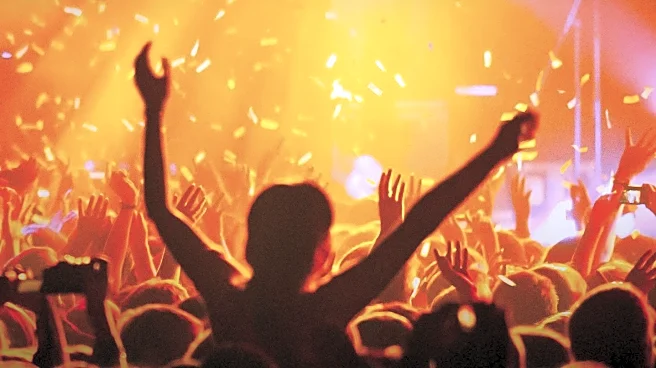What's Happening?
The concept of 'collective effervescence,' coined by sociologist Émile Durkheim, describes the heightened emotional experience people feel during shared events like concerts, protests, or religious gatherings. This phenomenon fosters a sense of unity and belonging, transcending individual experiences. Experts highlight the positive psychological effects of such experiences, which can enhance well-being, reduce anxiety, and strengthen social bonds. The article encourages individuals to seek out opportunities for collective effervescence to improve mental health and community connection.
Why It's Important?
Understanding collective effervescence offers insights into the social and psychological benefits of communal experiences. In an era marked by increasing isolation and digital interaction, these shared moments can counteract feelings of loneliness and disconnection. By promoting social cohesion and emotional well-being, collective effervescence can play a crucial role in fostering resilient communities and enhancing individual happiness. This concept also underscores the importance of maintaining cultural and social rituals that bring people together.
What's Next?
As society continues to navigate the challenges of modern life, there may be a renewed focus on creating and participating in events that facilitate collective effervescence. This could lead to increased investment in public spaces and cultural events that encourage social interaction. Additionally, understanding the dynamics of collective effervescence could inform strategies for addressing social issues and promoting mental health on a broader scale.









